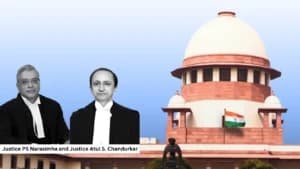The Delhi High Court has dismissed a writ petition filed by Tata Play Ltd challenging a tax demand order of over ₹10 crore, which included tax, interest, and penalties for the financial year 2020–21. The case centered around the alleged wrongful availing of Input Tax Credit (ITC) and procedural lapses in the issuance of the Show Cause Notice (SCN).
Background of the Dispute
Tata Play Ltd, a registered DTH service provider, contested a Show Cause Notice issued on 30th November 2024 by the Sales Tax Department, followed by a demand order dated 28th February 2025. The demand included:
- ₹5.63 crore as tax
- ₹4.22 crore as interest
- ₹56 lakh as penalty
Read also:- Justice Harpreet Singh Brar Allows Bail in GST Fake Firm Case Involving ₹107 Cr Tax Credit
The notice alleged that Tata Play had wrongly availed excess ITC for the period April 2020 to March 2021.
Key Legal Issues
The court examined two core issues:
- Whether the SCN was time-barred under Section 73 of the CGST Act?
- Whether Tata Play was denied a fair opportunity of being heard?
Tata Play argued that the SCN was issued beyond the permissible limit. Under Section 73(2) and 73(10) of the CGST Act, a show cause notice must be issued at least three months before the expiry of the three-year limitation for passing a final order.
“The SCN should have been issued on or before 28th November 2024,” argued the petitioner, relying on judgments from Andhra Pradesh and Supreme Court rulings on similar interpretations.
Read also:- Supreme Court Grants Divorce to Anurag Goel, Quashes 498A Case After 8 Years of Dispute
However, the Delhi High Court clarified that the term "three months" should be understood as three calendar months, not merely 90 days.
“The period from 30th November 2024 to 28th February 2025 includes three full calendar months – December, January, and February. Therefore, the SCN is within the time limit,” the Court ruled.
The bench cited Himachal Techno Engineers vs State of Himachal Pradesh (2010) 12 SCC 210, where the Supreme Court emphasized that calendar months should be used for such calculations.
Read also:- Supreme Court Questions Different Height Rules for SC and Tribal Candidates in ONGC Case
Opportunity for Personal Hearing
Tata Play also alleged that they were denied a proper personal hearing as required under Section 75(4) of the CGST Act. The company missed the scheduled hearing on 27th January 2025 and claimed a “portal glitch” misrepresented their request for a hearing.
The Court rejected this claim, observing that:
“Despite being given multiple chances, Tata Play failed to attend the scheduled hearing and did not seek further adjournments.”
The Court further noted that the law allows up to three adjournments, not a mandatory three. Hence, the denial of a third opportunity was not a violation of natural justice.
Read also:- Supreme Court Grants Divorce to Anurag Goel, Quashes 498A Case After 8 Years of Dispute
The High Court upheld the validity of both the SCN and the demand order, stating:
“The impugned SCN and order are within the statutory time frame and no breach of natural justice has occurred.”
However, it permitted Tata Play to file an appeal under Section 107 of the CGST Act by 31st August 2025, and clarified that the appellate authority must consider the appeal on merits without rejecting it due to delay.
Case Title: Tata Play Ltd. vs. Sales Tax Officer Class II/AVATO
Case Number: W.P.(C) 4781/2025 & CM APPL. 22012/2025















